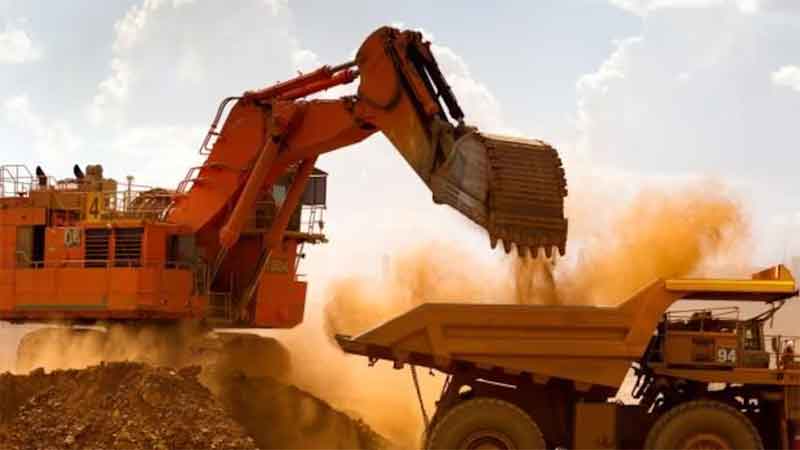Odisha is home to abundant reserves of high-grade natural resources like iron, bauxite, chromite, and manganese ore, along with other valuable minerals such as coal, limestone, dolomite, tin, nickel, vanadium, lead, graphite, gold, gemstones, diamonds, and decorative stones. The resource-rich Odisha accounts for 57 percent of India’s iron ore production, with over 60 active mines and more than 150 square kilometres under exploration for additional mineral resources. The people of Odisha are neither shareholders nor beneficiaries of the state’s vast mineral resources. Ironically, the poorest of the poor reside in the mineral-rich regions of Odisha, highlighting the stark inequality in the distribution of wealth and benefits from these natural assets. The paradox of plenty defines the state of development in Odisha where poverty and hunger continue to be the national and international news.
Since independence, Odisha has consistently been pro-business and mining led industrialisation. Successive governments, led by various political parties such as the Congress Party, Swatantra Party, Janata Dal, Janata Party, Biju Janata Dal (BJD), and Bharatiya Janata Party (BJP), have provided uninterrupted support to business houses and mining-led industrial corporations in the name of economic growth and development in Odisha. However, instead of genuine economic development, the people have witnessed the persistent dominance of mining corporations over democracy, turning the mineral-rich region into a state of resource curse for its inhabitants.
The rent-seeking nature of the state and government in Odisha has failed to support either economic growth or human development for its people. Instead, it has reinforced the dominance of caste, class, and the propertied elite, entrenching their control over both the state and its governance of resources. This has laid the foundation for a neopatrimonial relationship between the state, government, businesses, and mining corporations, further consolidating mining corporations’ power and profit at the expense of equitable development in the state. This dominance of mining corporations over democracy in Odisha has led to a persistent political and economic crisis for the people of the state.
Performance Audit of Systems and Controls in Assessment and Collection of Revenue from Major Minerals for the year ended March 2022 (Report No. 6 of the year 2024) by the Comptroller and Auditor General of India (CAG) reveals that the state government has helped mining corporations which led to the massive loss of mining revenue. The state exchequer has also lost massively due to the undervaluation of mineral ores by the Government of Odisha. This undue support by the government to private mining corporations comes with massive political donations. Mining corporations in Odisha have paid ₹601 crore in electoral bonds to various political parties. All major parties, including the BJD, BJP, and Congress, have received their share of this political fee in exchange for supporting mining interests in the state. The BJD received the largest share, amounting to ₹453 crore, while the BJP received ₹145 crore, all from six active mining companies operating in Odisha.
Who cares about the mining revenue loss of ₹22,392 crore to the Odisha exchequer? Who cares about the ₹10,294 crore lost due to the undervaluation of ores? Who cares about the people and the environment in Odisha’s mining regions? Mainstream political parties, mining corporations, and both ruling and non-ruling elites are working together to uphold each other’s interests, while the people and environment in Odisha continue to suffer in unemployment, poverty, hunger, underdevelopment and illness. Successive governments led by mainstream political parties have consistently provided unwavering support to mining companies and other extractive industries, allowing them to exploit the state’s natural resources as if the government exists solely for their benefit, rather than for the people of Odisha. This collaboration not only undermines democracy but also destroys the conditions necessary for deepening democratic governance in the state.
The collaboration and dominance of mining corporations over politics, political parties, leaders, and governments is undermining democracy in the state. Both the ruling party and opposition parties, along with their leaders, benefit from political donations to provide support for the mining companies. This crony capitalism, driven by mining companies and their extractive practices, is ruining the state’s economy, politics, environment, and the democratic future of the people in Odisha.
The BJP came to power by ending more than two decades of BJD rule in the state, but their economic and mining policy positions are not very different. Both the ruling BJP and opposition BJD share an unwavering commitment to mining companies. The new Chief Minister of Odisha, Mr. Mohan Charan Majhi, hails from a tribal community; however, the marginalisation and displacement of tribals from their land due to mining does not seem to concern him. He is actively working to hand over forest areas and tribal lands for mining without any political or moral qualms, despite being a tribal leader. Political parties and leaders are under the influence of mining companies, with regular paycheques from these corporations establishing a foundation for pro-mining narratives among political parties and their leaders, regardless of their political affiliations. Mining is a risk-free business in Odisha.
The protection of land, natural resources, and livelihoods is crucial for peace and prosperity in the state. History reveals that economic growth driven by mining-led industrialisation does not eliminate poverty and hunger. Cooperative and collective ownership of natural resources, along with egalitarian distribution and governance, can help eradicate poverty, hunger, and underdevelopment in the state. In this context, the people of Odisha need to pursue a new politics that ensures that people become shareholders and owners of the state’s mineral resources. The first step is to mobilise the working population to oppose mining corporations and break their grip on politics, the state, and the government. Radical alternative politics in Odisha can only pursue policies of egalitarian resource redistribution only by focusing on equality, justice, and liberty as enshrined in the Indian Constitution.

